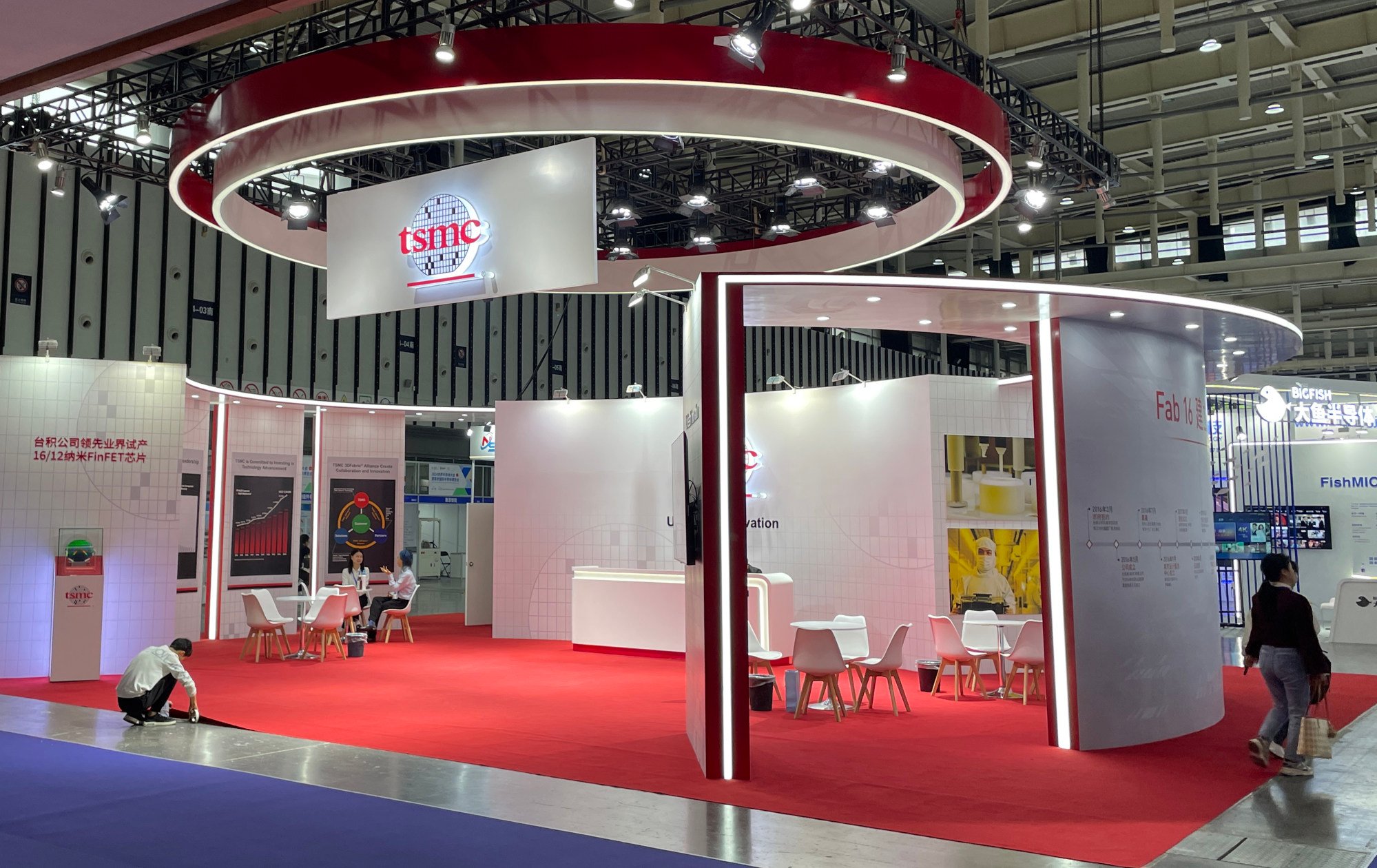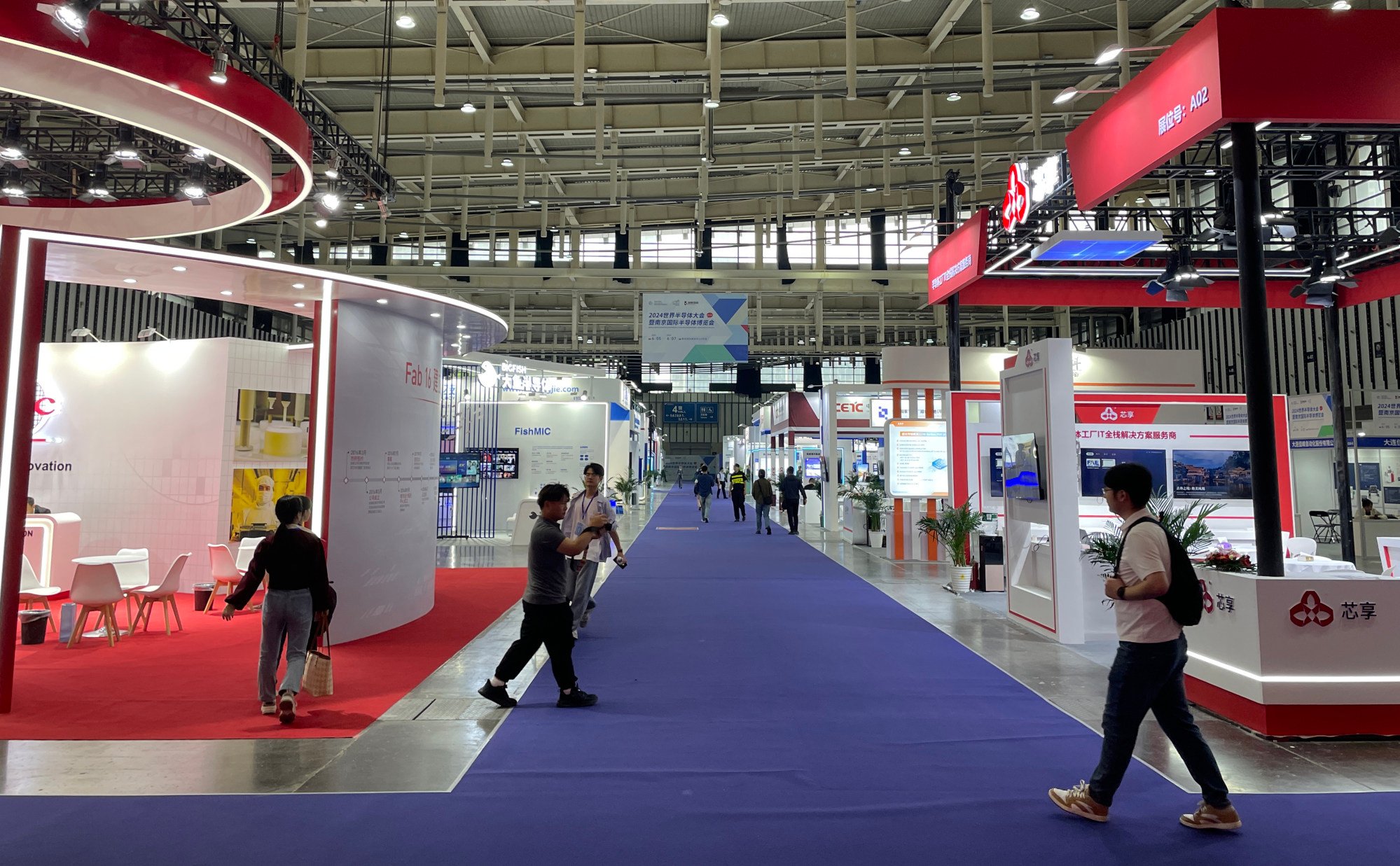A key semiconductor industry event in China attracted a smaller number of exhibitors this year, reflecting local market challenges and a desire to stay out of the limelight amid intensified US export restrictions.
The sixth edition of the World Semiconductor Conference (WSC), which kicked off Wednesday in Nanjing, the capital of China’s eastern Jiangsu province, drew more than 200 exhibitors from a wide range of chip-related applications such as artificial intelligence (AI), automotive, and electronic design automation (EDA) software, as well as global foundry leader Taiwan Semiconductor Manufacturing Co (TSMC), Huawei Technologies and Tencent Cloud.
Last year, the show attracted 300 exhibitors. Chen Gen, one of the organisers, attributed the decline to “market-driven” practices, whereas in the past many exhibitors were “invited” to attend by the local government.
Do you have questions about the biggest topics and trends from around the world? Get the answers with SCMP Knowledge, our new platform of curated content with explainers, FAQs, analyses and infographics brought to you by our award-winning team.
Visitor numbers also appeared to be down this year, reflecting a decline in the local market. China’s semiconductor sales dropped 14 per cent year on year in 2023, the steepest decline of all markets in the world, according to the US-based Semiconductor Industry Association (SIA). The current market situation is still uncertain, with the industry still facing challenges, according to speakers who addressed a forum on high-quality growth in the chip sector.

TSMC, which has operated a foundry capable of making 16-nanometre grade logic chips in Nanjing since 2016, declined to participate in the forums or comment on the sidelines of the event amid geopolitical tensions across the Taiwan Strait. Last year, Chen Fang, a TSMC China manager, gave a presentation on the company’s road map to 2-nm advanced technology through to 2026.
Only a few foreign firms are exhibiting at this year’s show, including Samsung Electronics, British chip IP provider Arm, US engineering simulation software company Ansys, STMicroelectronics, and Ericsson China.
Other local exhibitors included graphics processing unit start-up Biren Technologies and China’s top flash memory chip maker YMTC.
Amid an ongoing price war in China’s carmaking sector, auto chip firms are feeling the heat. Xiao Zuonan, general manager at Suzhou-based China Core, a maker of microcontroller units for vehicles, said during a forum session on Wednesday that profit margins last year were under downward pressure due to pricing trends in the auto market.
Xiao highlighted the predicament facing most small Chinese auto chip companies when it came to substituting foreign products. “Profits are negative even if the sales reach several billions of yuan, [so] how can we compete with foreign auto chip companies whose products cover all the segments and have a much deeper pocket than us.”
Beijing has reportedly told the country’s carmakers to prioritise the use of home-made chips in their procurement, according to a Bloomberg report earlier this year. Most auto electronics applications do not require advanced chipmaking technologies, and are feasible with the mature 28-nm node.

Amid China’s frenzied AI activity, semiconductors and generative AI applications were another focus at WSC. Arm promoted its semiconductor IP solutions to help streamline chip designers’ workflow for faster product launches.
Liu Daolong, an semiconductor solutions expert at Tencent Cloud, said the company’s cloud-based EDA platform is offering free solutions for chip designers, to help them work with local foundries like Semiconductor Manufacturing International Corp, as part of Tencent’s strategy of building up a customer base.
Teng Ran, head of semiconductor research at CCDI Group, a market analysis firm backed by China’s Ministry of Industry and Information Technology, gave a bullish outlook on the prospects for generative AI-enhanced smartphones and personal computers in 2024.
“AI [generated content] will largely boost demand for chips including CPUs, GPUs and memory, as well as hardware based on these chips, following a decline last year,” he said.
More from South China Morning Post:
- As Huawei looks towards more advanced semiconductors, speculation swirls on how far it can push existing chip-making gear
- TSMC’s new chairman affirms forecast of AI-fuelled global semiconductor market recovery in 2024
For the latest news from the South China Morning Post download our mobile app. Copyright 2024.





